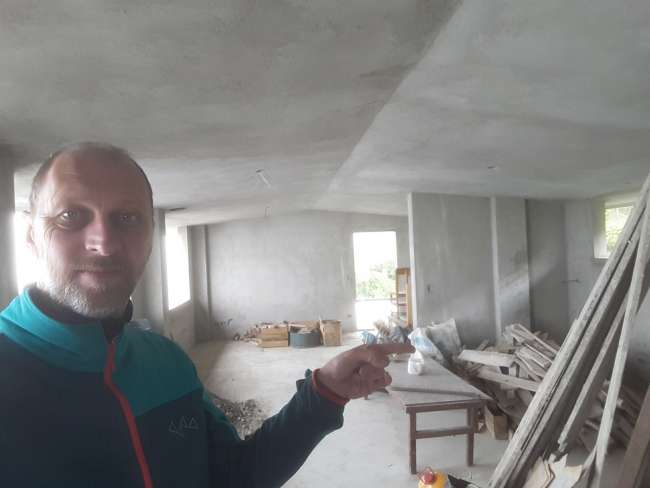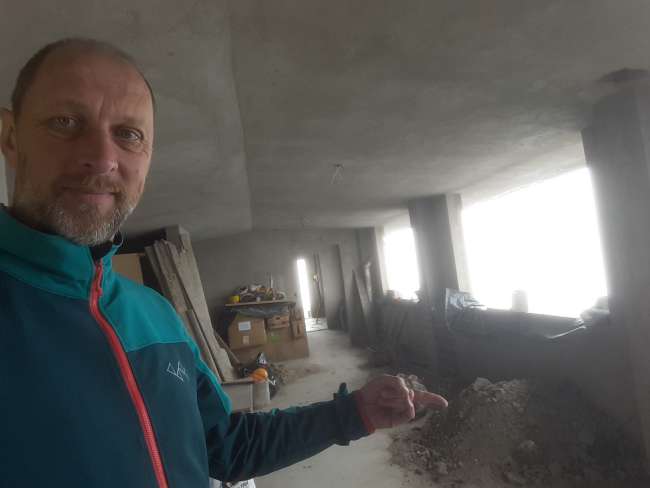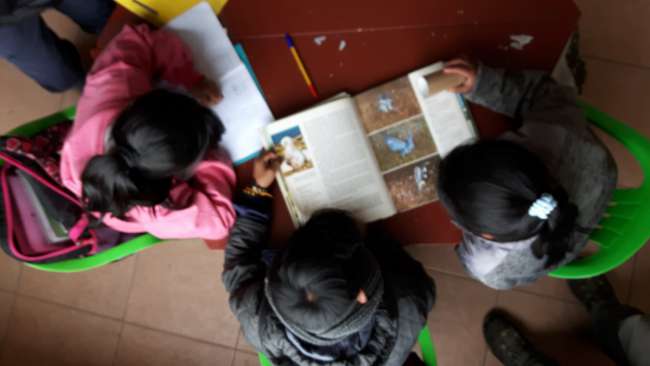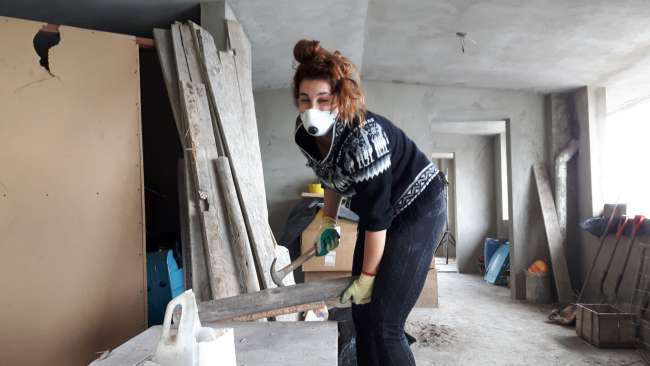Clearing debris
Diterbitkan: 14.06.2017
Langgan Surat Berita
13th June 2017
It wasn't easy to get out of bed because it was the place where it's warm, the only place. I knew that because at six o'clock my bladder was pressing, I went to the toilet and quickly back under the covers. Then at seven o'clock, when it was time to get up... as I said.
Nevertheless, we were punctual at half past eight in the foundation, Laura and I. Diana, the other volunteer, works in the nursery for small children, which is located elsewhere. She has to start at eight o'clock.
We prepared the snack. We diced a banana into a cup for each child, poured yogurt over it, and provided a spoon. There were thirteen children, so only a few. Laura and I were delegated by Marco to clean up the construction site. The problem on the construction site is that things are lying around everywhere, partly garbage, partly still usable. The waste itself often needs to be separated: wood, nailed wood, metal, plastic, old cement bags, debris, dust, remnants of pipes, cardboard, etc.
Contrary to Swiss construction sites, where the waste ends up in a dumpster, here it may just be in the middle of a room or exactly on the wall that will be tiled soon, or where the electrician needs access. Chaos, simply put. Our job was to organize the chaos and free up the walls and spaces that will be needed soon. We worked on that in the morning and discussed with Marco what needs to be done tomorrow. On the ground floor, a pile of concrete gravel came out from under a stack of wood, which needs to be freed from waste and moved to the garden behind the new building at the very top, in order to be able to make various improvements to the path to the rear entrance later on. It will then be quite a up and down with a bucket in hand. Fill it up, empty it down. It will take its time, but eventually the pile will be up there and out of the way.
Today we mainly cleared and sorted debris, as well as dismantled wood. But only before lunch, then we took care of the children at the foundation. I didn't use much today, but I was able to help Sebastiano with math a bit. He had to find operations in chain calculations that cancel each other out and thus simplify the whole term. But either his ability to grasp was very limited, he was very tired, or the distraction was too big. Probably all together, in any case, he let me explain everything to him in time to be the homework solver. That's when I stopped and left. So he had to do something again. Then I helped him again, until he switched to folding paper boats. I left again. He did something again, and so on.
What I noticed: he couldn't do mental calculations well. Although he already had to calculate with decimal places, he couldn't calculate 18.25 - 10.25 in his head. Or split 4 times 4.25 cleverly in his head so that it can be done quickly. No, he had to write it down and then proceed with subtraction in writing or multiplication in the Ecuadorian way. Mental arithmetic does not seem to be practiced in school here. With our teaching materials and methods, this is a primary concern: to think, study, and find the simple, logical way because we have always worked with all sorts of tricks and allow and support individual thinking paths, as long as they are correct and effective. Here, presumably, method 1 is taught and practiced, and that's it.
Of course, it is good that the children are supervised here to solve their homework, because I believe that some of them would not do their homework otherwise. But it takes incredibly diligent, focused children who can work in this room with twenty-two other children (more children in the afternoon and only the older ones in the upper room) with a clear goal. Mainly on their own, because supervision cannot be given continuously to one child. I only saw one student who I can say with absolute certainty does exactly that. The others mostly behave in an unfocused way, have other things on their minds, or are overwhelmed like Sebastiano. I came here with the idea that the children here know the importance of school. That it is clear to them that this is their chance to get out of the neighborhood and therefore many of them are diligent in school. Definitely not true. The percentage of students who work seriously seems to be even smaller to me. I could be mistaken and I will gladly retract that later. It could also be that some teachers here are garbage and just want to collect their paycheck at the end of the month. In a book about Ecuador, I read that the school system is still outdated and teaching depends a lot on the teacher. Of course, it's completely different for us. The school system is modern, innovative, team-oriented, and individualizing. But people, one thing remains: it still depends on the teacher, on the teachers. You can tell me whatever you want. That's how it is. However, I am very convinced that we have 99% good teachers who take their profession seriously.
At least at our school, right?
I'll even add one percent.
Langgan Surat Berita
Jawab





